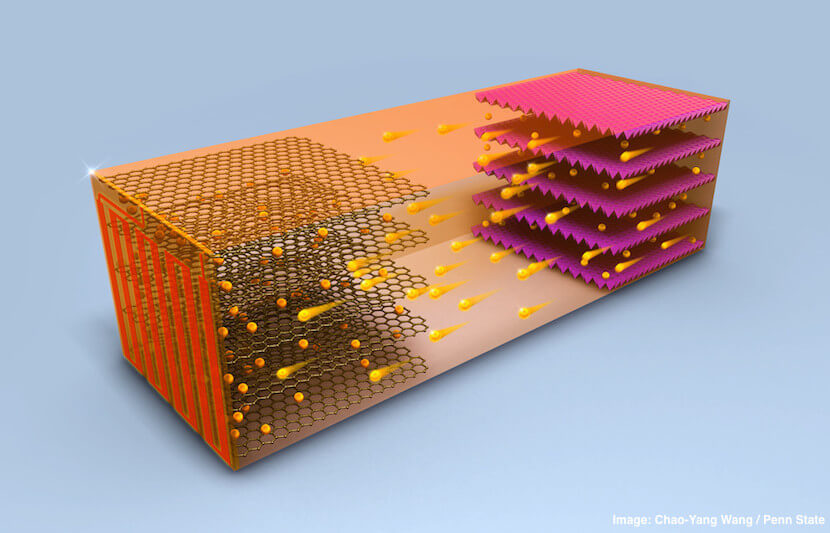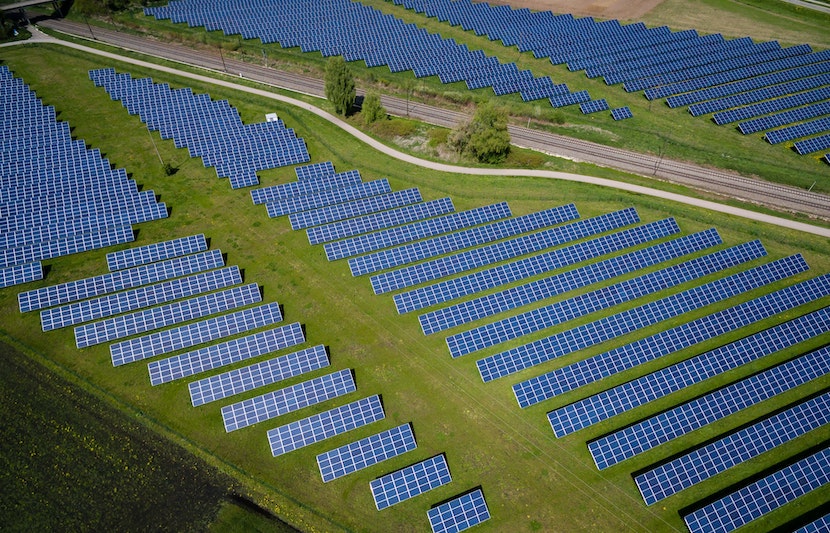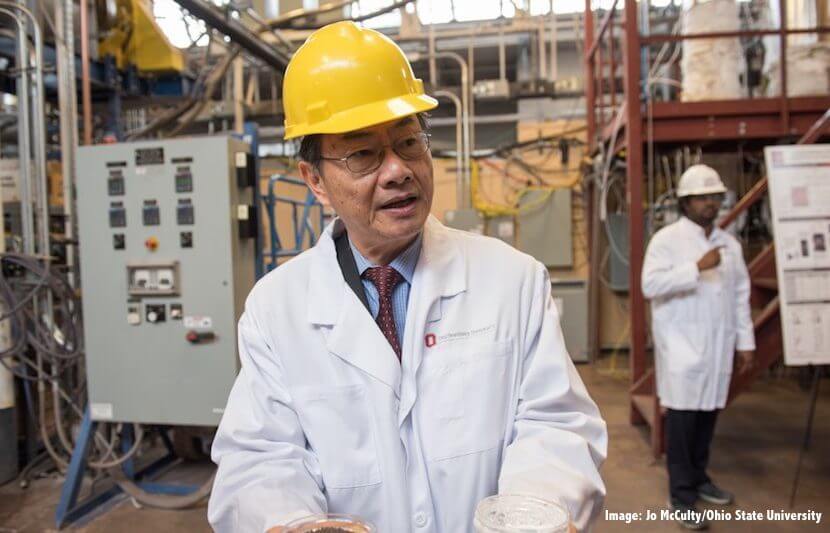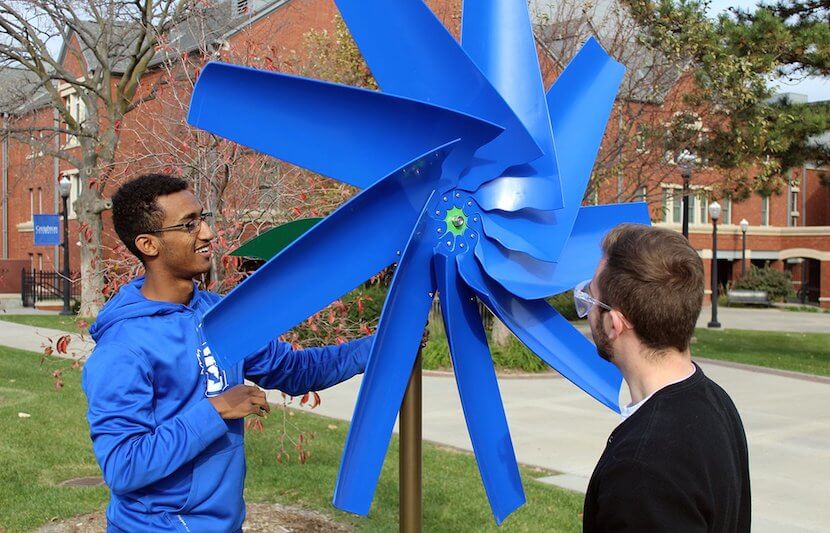-
Fast-Charging, Self-Heating Battery Set to Revolutionize Electric Vehicles
Penn State researchers have developed a self-heating car battery, capable of being rapidly charged in cold temperatures. This is a significant development since the weather is one of the biggest barriers that electric car companies face, and it could inspire more people living in cold-weather states, outside of sunny California, to purchase electric vehicles. Traditionally,… Read More
-
Innovative Water-Splitting Technique Boosts Solar Fuel
A team of researchers from the University of Exeter has developed a method to produce hydrogen, which can be used as a fuel, by splitting water into hydrogen and oxygen, using just sunlight. Hydrogen fuel produced in this manner has many advantages. It is pure and inexpensive. It is also renewable with zero carbon emissions,… Read More
-
MIT Engineers Figure Out How to Turn Plastic Into Heat Conductor
It may sound counterintuitive, but researchers at MIT have used plastic, commonly known as a material for heat insulator, to develop the next-generation heat conductor. “Nowadays heat dissipation is an increasingly critical challenge for integrated devices that continue to miniaturize towards nanoscale,” said Yanfei Xu, postdoc in MIT’s Department of Mechanical Engineering and co-lead author… Read More
-
Near-Death Experience Inspires Hybrid Technology for Cheaper, Longer-Lasting Batteries
A pair of researchers at The University of Toledo (UT) have developed an energy storage system that increases the longevity and performance of battery packs in electric vehicles, satellites, planes, grid stations, and more. The research is published in Batteries, an international journal, and was presented at the Advanced Design and Manufacturing Expo at the… Read More
-
80% of U.S. Energy Could Come From Wind and Solar Power
The U.S. could reliably source 80 percent of its electricity demand from wind and solar power alone, according to a joint study by researchers from the University of California–Irvine (UCI), the California Institute of Technology, and the Carnegie Institution for Science. The ability to produce this much renewable energy is encouraging, as the conversion of… Read More
-
Making Fuel Cells Cars More Affordable
Researchers at the University of California, Riverside, have developed an inexpensive and efficient alternative catalyst material for fuel cells, a cleaner source of electricity than natural gas or coal. Their paper is published in Small. A fuel cell uses fuels, such as hydrogen, to produce cleaner and more efficient energy than conventional combustion sources. Additionally,… Read More
-
A ‘Green’ Carbon Fiber Alternative to Fossil Fuels
An interdisciplinary research team led by Gregg Beckham, a group leader and senior engineer from the National Renewable Energy Laboratory (NREL), has developed an environmentally friendly process to convert biomass into “acrylonitrile,” a key compound in the manufacturing of carbon fiber. Demand for carbon fiber has increased significantly as manufacturers have begun looking for ways… Read More
-
Mining the Moon for Water to Generate Rocket Fuel
Imagine if the moon could generate all of the fuel for future space exploration. Well, that is part of the plan to mine the moon for water, a new mission for Dr. Philip (Phil) Metzger, a planetary scientist with the Florida Space Institute (FSI) at the University of Central Florida, and Julie Brisset, a research… Read More
-
Duke’s ‘Laser Evaporation Technology’ Makes ‘Impossible’ Solar Materials Possible
A team of researchers at Duke University has developed an efficient method to create hybrid thin-film materials, which could aid in the development of solar cells, light emitting diodes, photodetectors, and optoelectronic devices. The researchers claim that this method, which uses perovskites, allows for the creation of solar materials “that would otherwise be difficult or… Read More
-
OSU’s Fossil Fuel Technology Yields Clean Energy
Engineers at The Ohio State University have developed a technology that can convert fossil fuels and biomass into useful products, such as gasoline and electricity, without emitting carbon dioxide into the air. They believe this will be an important step to allow industries to create clean energy until renewable energy, such as solar and wind… Read More
-
MIT’s Glow-in-the-Dark Plants Could Be Our Light Source Someday
MIT researchers have successfully engineered plants that glow in the dark by embedding the leaves with specialized nanoparticles. This new technology, the researchers believe, could be optimized and lead to plants being our sources of light. So, one day we won’t be needing a desk lamp or streetlights. Instead, we could be reading by the… Read More
-
Bristol University Scientists Figure Out How to Turn Beer Into Sustainable Fuel
Researchers from the University of Bristol’s School of Chemistry have successfully turned beer into sustainable gasoline using a new technology they developed. This brings them one step closer to converting ethanol, using beer as a model, into sustainable fuel on an industrial level. A commonly accepted need for sustainable alternatives to fossil fuels for gasoline… Read More
-
Creighton University Students ‘Grow’ Second EnergiPlant to Power Devices
A group of students at Creighton University in Omaha, Nebraska, has successfully built a second EnergiPlant — a photovoltaic system and USB charging station where students can power their devices and socialize on campus. This new EnergiPlant looks like a 12-foot tall metal flower, and was the culmination of the group’s coursework for the university’s… Read More
-
UW-Madison Faculty Presses University to Take Climate Action
Faculty members at the University of Wisconsin-Madison are joining the fight to tackle climate change. They have adopted a resolution calling for the university to take action and adopt measures that would ensure an environmentally friendly campus. The resolution encourages funding, creation and implementation of a campus-wide climate action plan with specific and measurable targets.… Read More
-
How The New School Is Advancing NYC’s ‘Green’ Efforts
The New School, located in the heart of Manhattan, is taking groundbreaking steps to advance environmental sustainability efforts in New York City. The university has constructed a 16-story LEED Gold certified University Center, served as the only college or university participant in the first ever NYC Zero Waste Challenge, and divested entirely from fossil fuels.… Read More
















